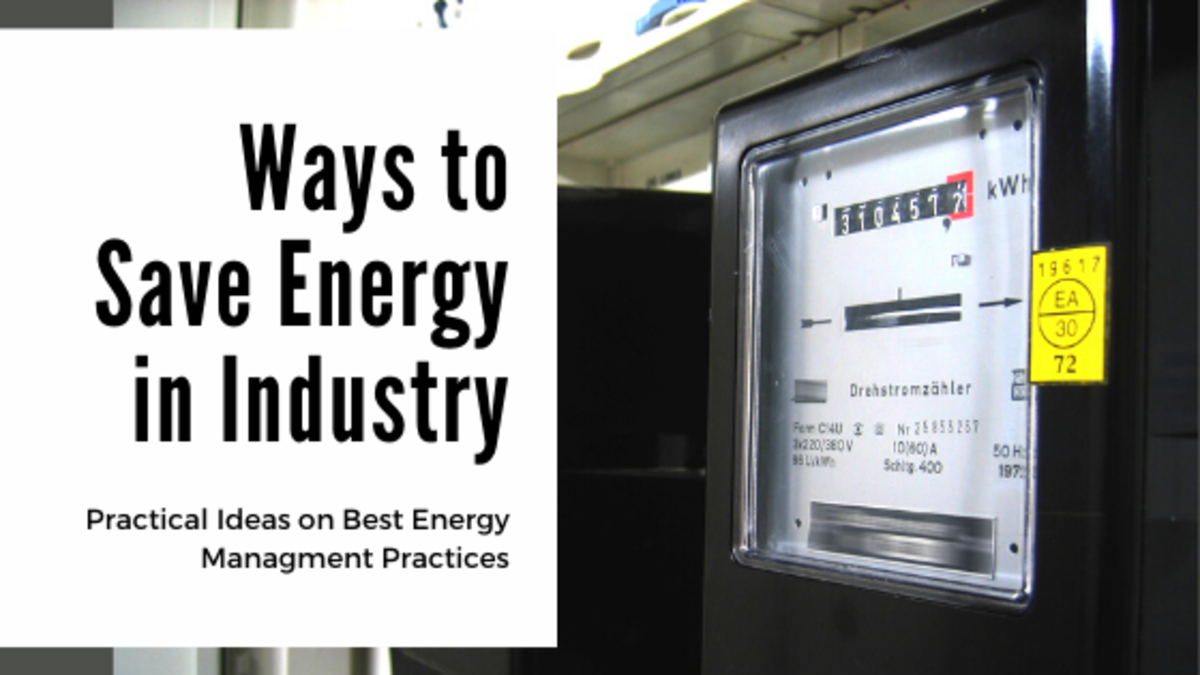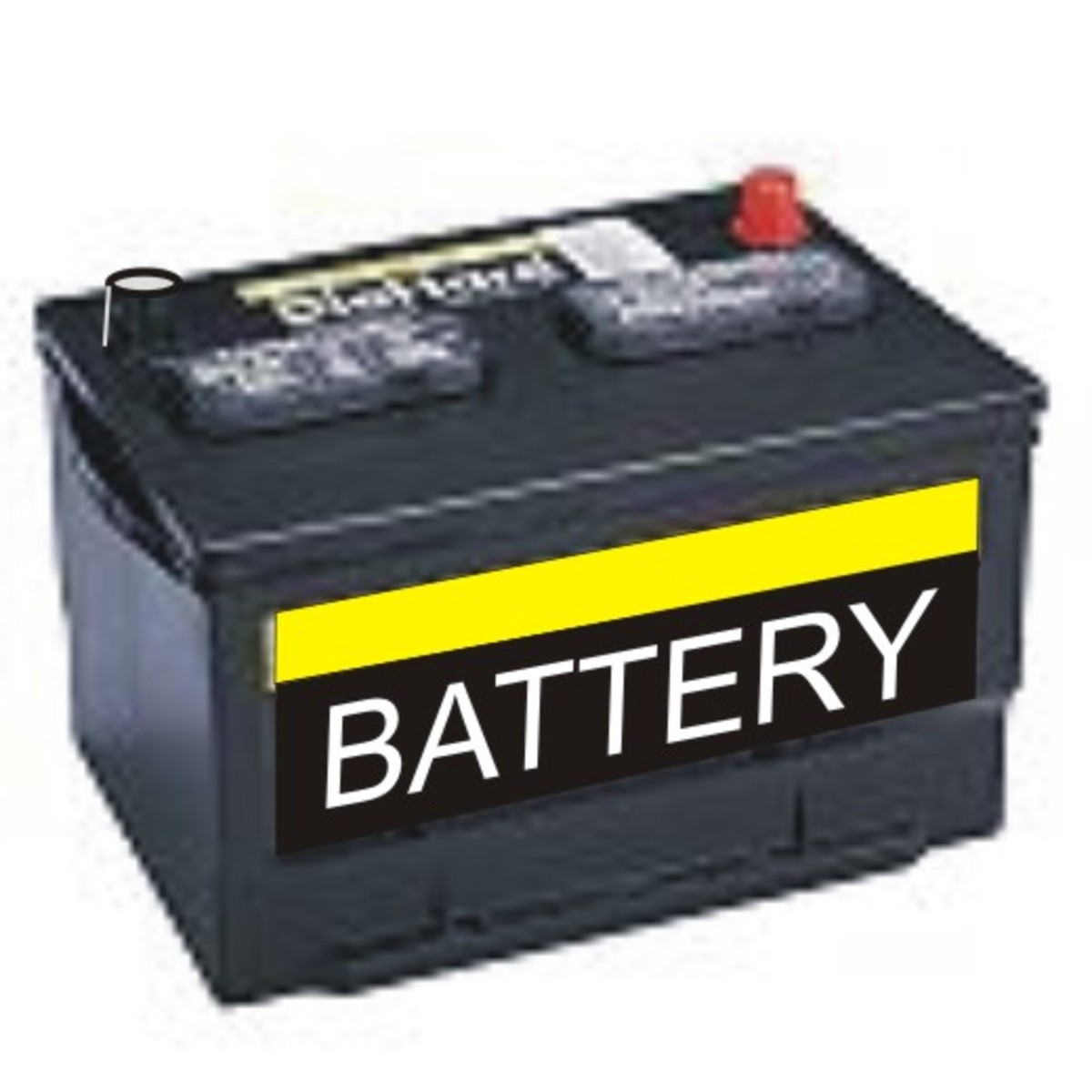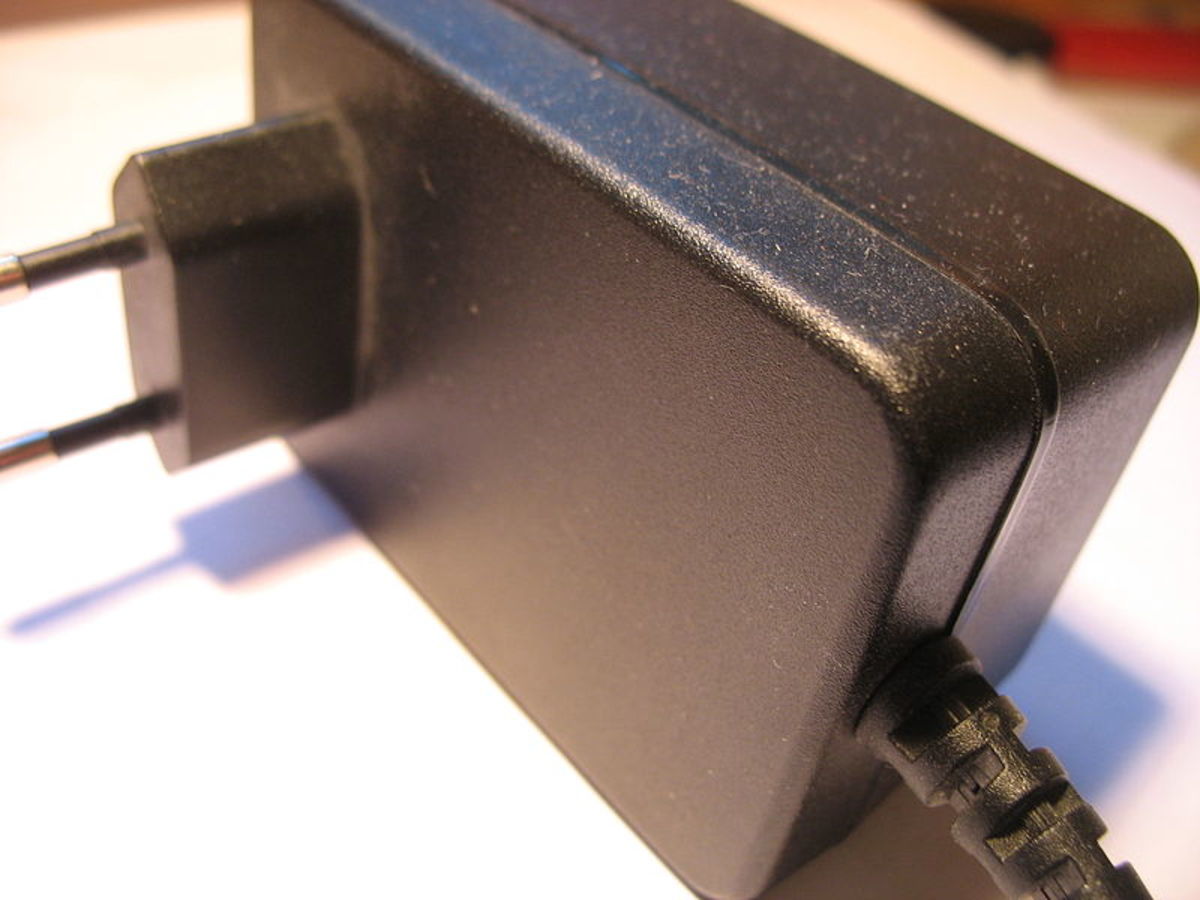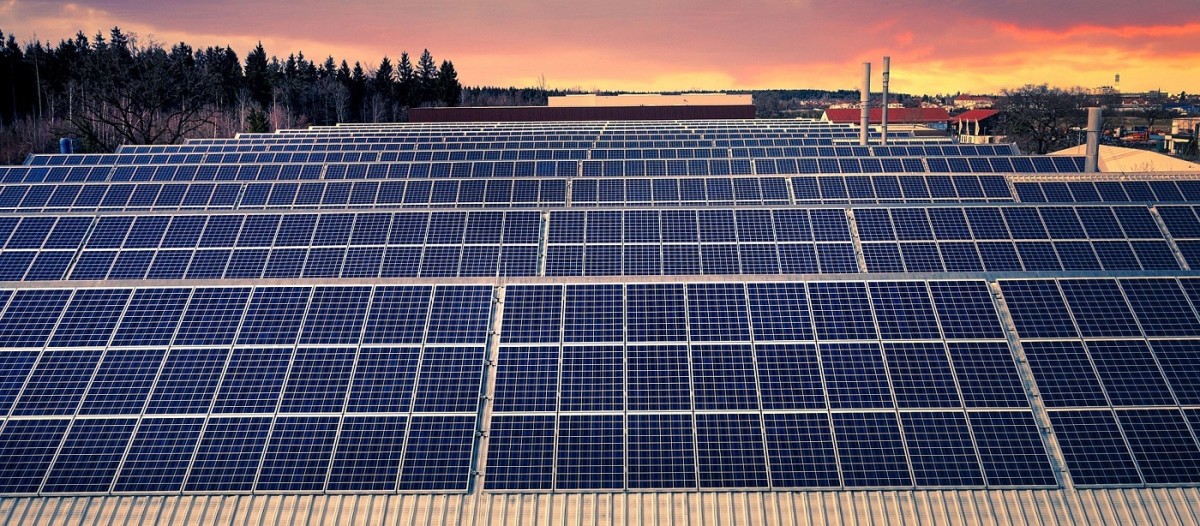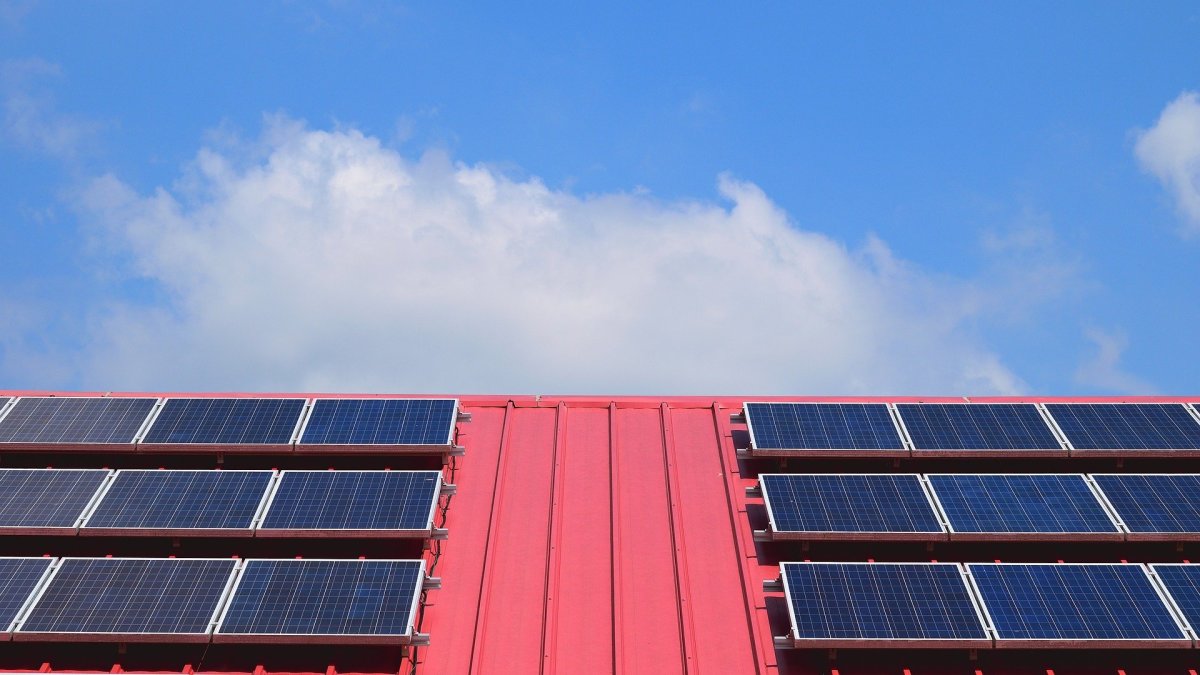Easy Ways to Save on Energy Costs
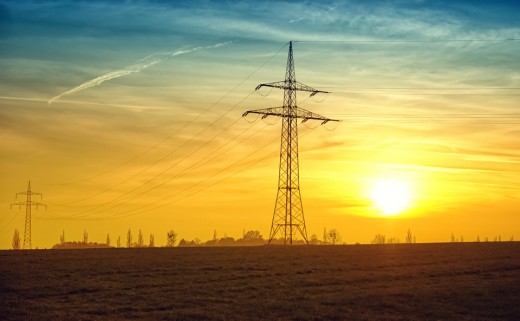
The monthly electric bill can be very terrifying if we don't pay enough attention to our own energy consumption. We often assume that our monthly bill is a fixed amount and concede to the thought that our personal lifestyle dictates exactly how much we pay at the end of the month to the power company. We even sometimes blame the company itself (taking it out on the guy who delivers a piece of paper) for raising its rates, adding suspicious surcharges, and for adding whatever they want to the breakdown to make our bill balloon to an amount we don't think we deserve.
But here's the thing - like how a teacher tells her students at the beginning of the semester, "you're the ones making your grades", we are the ones worth pointing a finger to when it comes to making our energy consumption high.
There are surprisingly so many easy things we can do right now and so many habits we can build on starting today in order to make our homes and ourselves more energy efficient. Despite appliances and devices becoming more and more energy efficient through the years, our energy consumption hasn't really changed a lot - in fact, we make this technological advancement an excuse to expending more energy anywhere (especially at home) and end up becoming lax about saving on energy cost.
An energy revolution may be brewing up right now as we are working through the transition from non-renewable energy to renewable, but a technological shift like this alone is inadequate. We need to make a cultural shift as well, as human beings, as dwellers of this earth to take an extra step in energy conservation.
At home, we can make slight changes to make sure we expend a lot less electricity and not be terrified anymore of the monthly bill, and even end up paying a lot less than we ever thought.
First, we need to get rid of bad habits which we don't notice well enough (because we're so used to making them) that end up costing us. I'm talking about unnecessary energy wastage that we commit just because we don't pay enough to our routine actions. This alone can save us a lot of money.
Next, we need to be able to identify what the energy-eating appliances and devices we currently use. We don't exactly have to sell them and not use them anymore (though there are certainly some energy eaters we can really live without), I'm simply talking about limiting their use in such a way not to inconvenience us while also not developing an over-dependence.
Third, we have to maximize our use of natural lighting. Don't feel too sorry for yourself if your home was built to be like a prison cell (which is quite unlikely). But there are still ways to make sure that you use the natural free energy of the son to make your house brighter during the day.
One problem that arises when you think about saving energy costs is cutting down on your usage of air-conditioning. Yes, the compressors on AC systems eat a lot of electricity, and it inconveniences us that we have to sacrifice our comfort to save some money - but there are also ways to make use of natural free air, and this kind of approach will give you your comfort back.
Lastly, establishing a monitoring system is one of the most effective ways to cut down on your electric bills. Knowing how much energy you consume at any point in time and getting a summary of all that at the end of the day encourages one to be more conservative.
Getting Rid of Bad Habits
Laziness is the enemy here. We can choose the inconvenient, unusual path today but at the same time build on a tomorrow that's energy-conservative and financially-conservative as well. Here are a few habits you can get rid of to save on electric costs:
- Turning the light on the bathroom when using and leaving it on for some time until you notice the light when it's afternoon or night time, and turning it off then.
- Opening the fridge for too long, not taking the time beforehand to know what you want to take out and end up consuming so much time choosing and looking. Most household refrigerators light up when opened, and the hot air infiltration when you open it makes it consume more electricity.
- Simultaneously using multiple appliances at the same time, when you only have enough attention for one. I'm talking about opening up your gaming laptop while you leave it because you got distracted by the basketball game on television.
- Not unplugging appliances which are no longer in use. When appliances are still plugged in after you use them, they actually eat 'phantom charges' equivalent to a 1-W light bulb.
- Leaving a few things on throughout the night. A night light is reconcilable, and guard lights out at your front yard or at the door of your house is understandable. But do you really need to download movies throughout the night, keeping your WiFi on? Do you really need the television to be on throughout the night to fend off bad dreams? And I think I'm taking something back because unless you have some serious medical condition, do you really need a night light?
You can slowly work your way towards becoming a person without these few major habits that cost you money without you realizing it. Simply practice going into your room for no reason, turn a light on, stay for five minutes, and turn the light off.
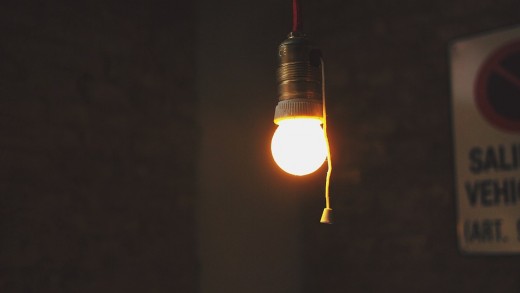
Cutting off Power-Eating Appliances
Modern domestic life has turned us into energy eaters. Old appliances used to be super inefficient that if you used appliances from thirty years ago, you'd pay an equivalent of four months of electric bills in one payment. Modern domestic life has also made us too dependent on our beloved appliances that make our lives 'easier' to the point that we become too lazy to accomplish very simple tasks. Some of these tasks we find tedious, so we force a machine to do it, and as a result we inflate our bills. Here are a few giant energy-eaters you can find at home:
Microwave oven and oven toasters. These are two appliances that domestic life can't really live without anymore, so I don't think you should consider cutting them off (I think nobody would). But what matters here is that you're being wise in your usage. take not that oven toasters are usually rated at 1,200 Watts. That's 400 3-Watt LED light bulbs lighting all at the same time. But oven toasters are usually at use for just five minutes. Just make sure you use it only once a day, and besides you should opt for a microwave since it's way more efficient in heating.
Washing machine. This appliance you can do without, or use only when absolutely necessary. This burns an average of 700 Watts, but unlike toasters and heaters you don't use this for a very short amount of time. Sure you probably only use it once or twice a week, but then a washing session usually takes up 60 minutes! So seriously, if you live alone or there are just two of you, consider hand washing your clothes from time to time or even selling off your washing machine. It gives your money back while giving you a sense of fulfillment.
Hair Dryer and Clothes Dryer. Why can't you use your towel in drying your hair? Why can't you simply hang your clothes out to dry, utilizing the sun's free energy? Maybe you live in a place that doesn't get much sun, but if you don't pile up washed clothes, there's certainly some time and room for you to hang your clothes indoors. A clothes dryer usually consumes 1000-4000 Watts. A hair blow dryer consumes 2000 Watts. Enough said.
Electric Iron. I really wonder why people don't use charcoal these days anymore. An electric iron consumes at least 1000 Watts. Use this everyday and your basically flushing money down the toilet.
Water Heater. The old kettle in a stove is still the best and most efficient. We have this tendency to use heaters more than once throughout the day, just because the container is a pretty good one. Our lazy asses end up re-heating at noon what he heated already in the morning. Keeping a thermos comes in handy, but seriously, water heaters should be sold back to the market for the amount of energy they consume. A water heater is usually rated at 3000 Watts. Use it for five minutes and you have an entire stadium lighted up by thirty-three 90-Watt LED lights for five minutes.
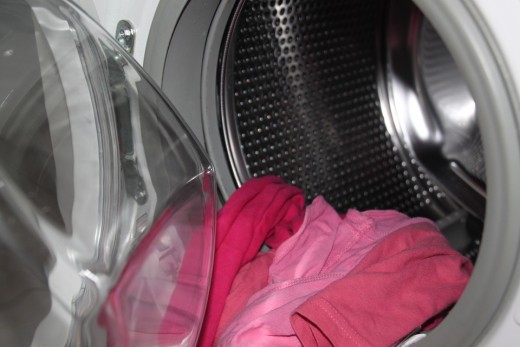
Maximizing Natural Lighting
Mr. Money Mustache did something quite inspiring with his home by using natural lighting. He had his own kitchen face the sunlight - a subtle thing you take for granted when choosing or building your home, but actually very essential.
We spend so much time on the kitchen even if we aren't cooks - for some it's also the dining area or adjacent to it, you go to the fridge a lot for many purposes, the kitchen is where you wash your hands most of the time, and let's face it, it's where you usually drink water. And everybody drinks water.
By designing our home to maximize natural available light on our kitchen, we can save so much money daily by only turning the kitchen lights on during the night. You can feel this advantage most especially during summer when the days are longer and when you don't need additional heat emitted by your light bulbs.
There are also other parts of our homes where we can maximize natural lighting. Your reading area for example, has to be one which doesn't require you to use a lamp all the time. Heck, you should read outdoors beside the sea or on top of a hill under a tree (that would be too ideal). If the uncontrollable glare of the sun inconveniences you, you could always have some blinds installed.
Making Use of Natural Ventilation
Everyone nowadays, especially those living near the equator, can't stop complaining about the heat. everybody wishes they had air-conditioning at home (without even realizing that if everyone had AC units at home, the temperature outside would become unbearable). There are inverter-type air-cons that are very energy efficient and save money in the long run, but they're usually expensive to acquire.
So why not pursue natural ventilation? Well, you don't exactly have to force yourself to put holes everywhere around your house. What you could do is also make use of exhaust fans - not the ones that consume a lot of energy because they drive a lot of dust outdoors, just the plastic ones enough to get a little heat out. You could also use the trick of using your stand-fan to drive out hot air away from your hose by aiming them to the outside of your windows.
When choosing a home, a higher ceiling is of course optimal, because that way, you get good separation from the hot air that rises from the ground (mostly from humans) to the ceiling. You could also have more plants around to absorb excess carbon dioxide from someone like you, and sou'd be extra lucky if you had trees that'll help carry the breeze.
Establish a Monitoring System
There are energy consumption monitors available on the market that you can hook up to your meter and then send a signal to your phone or your tablet or to a remote screen. If you opt for something like this, which Mr. Money Mustache does, then you're in a good spot.
But there are alternatives to monitoring your energy consumption other than cool devices. You can simply use paper and pen, or better yet - a daily journal. You can simply write down entries of a list of the appliances you used for the day and the corresponding duration you used them. You don't have to go the extra nerdy-inconvenient mile of calculating how much energy you used. You can simply keep on entering the data on your journal, and compare your monthly bills. This journal is a way for you to know where to improve on.
The point here isn't on accurate calculation, but simply monitoring - knowing that you're actively making your choices about your energy-eaters and being accountable for them. You'll eventually be able to find a sweet spot where you're used to writing down and slowly minimizing energy usage to get to an optimal point of maximum savings.

